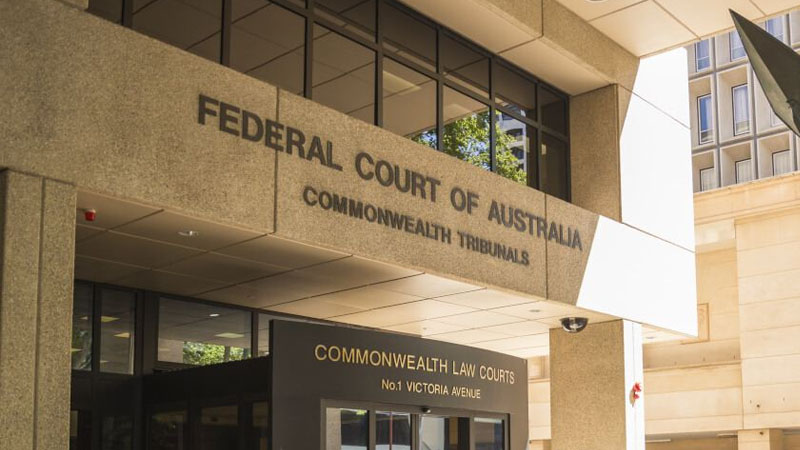Federal Court grants leave for director of corporate trustee

Following proceedings commenced by ASIC, the director of an SMSF trustee has successfully applied for leave to continue managing the corporate trustee of his SMSF after they were found to have contravened various sections of the Corporations Act.
In the case of Australian Securities and Investments Commission v Helou (No 2) [2020] FCA 1650, the defendant, in his position of director, contravened sections 674(2A) and 675(2A) of the Corporations Act 2001 (Cth) (the act) on various occasions, according to the court documents.
From 8 March 2016 until 27 April 2016, he was also in contravention of s 674(2) and 675(2) of the act by MG Responsible Entity Limited (MGRE) and Murray Goulbourn Cooperative Co Limited (MG), whereby MGRE and MG failed to disclose that there was likely to be a material decrease in MG’s earnings guidance for FY16 published on 29 February 2016 and that the earnings guidance was unlikely to be achieved from 8 March 2016 until 8.48am on 27 April 2016.
The case was one of five proceedings brought before the court. Three of these were regulatory enforcement proceedings including two brought by ASIC and one brought by the ACCC.
In addition to the three regulatory proceedings, there have been two class actions. These were both set down for a joint trial before being settled.
In this proceeding, ASIC sought disqualification orders against the defendant, which would restrict him from managing corporations for three years.
Mr Helou, the defendant, applied for leave to continue managing five closely held unlisted proprietary companies.
These companies included Vanmatt Pty Ltd, Vanmatt Enterprise Pty Ltd, 8 Pulses Food Company Pty Ltd, Proplant Foods Pty Ltd and Bee Way Pty Ltd.
Vanmatt was the corporate trustee of Mr Helou’s and his wife’s SMSF. Mr and Mrs Helou were the only directors and shareholders of Vanmatt. With the exception of the investments it makes in its capacity as trustee of the Garzanne Super Fund, Vanmatt had no dealings with third parties.
Vanmatt Enterprise was the corporate trustee of the Helou Family Trust. The Helou Family Trust was a discretionary family trust, the beneficiaries of which are Mr and Mrs Helou and their children. Mr and Mrs Helou and their children are the directors of Vanmatt Enterprise. Mr and Mrs Helou are its sole shareholders.
Like Vanmatt, Vanmatt Enterprises had no dealings with third parties, save in connection with investments it makes in its capacity as trustee. It did not have any debt and funds its investments from its own resources.
Justice Jonathan Beach noted that the case involved unintentional contraventions by a senior officer of a public company who had an otherwise clear record and was otherwise of good character.
Justice Beach stated that Mr Helou’s contraventions can be contrasted against offences involving deliberate dishonesty or intentional wrongdoing.
He also noted that the repetition of these contraventions was unlikely.
“Mr Helou is not seeking leave to manage any companies the subject of continuous disclosure obligations, but rather small closely held proprietary companies,” he stated.
“Conditions are proposed that none of the companies become a disclosing entity during the period of disqualification and he has managed those companies in the intervening four-year period without incident.”
He also pointed out that there were no real risks to shareholders, creditors, employees or to the public if Mr Helou were to be given leave to continue to manage the five companies in question.
“To the contrary, it may be detrimental to those companies and their shareholders, creditors and employees, if leave was denied,” he stated.
Justice Beach granted Mr Helou the necessary leave. He noted that with Mr Helou principally responsible for the investment decisions of Vanmatt, if Mr Helou were no longer able to assume that responsibility, it is likely that the value of the Garzanne Super Fund would diminish.
“Further, Mr Helou is required by superannuation legislation to remain a director of Vanmatt in order for the Garzanne Super Fund to continue to meet the definition of a self-managed superannuation fund,” he stated.
“If Mr Helou were not to remain a director but retain his interest in the fund, the fund would become ‘non-compliant’, liable to have its taxable income taxed at the top marginal tax rate, rather than the 15 per cent rate that otherwise prevails, and would be subject to the Australian Taxation Office issuing rectification or education directions.”
To avoid that outcome, Justice Beach stated that Mr Helou would need to move his superannuation out of the fund to a public fund, which would likely result in administrative costs, financial losses consequent on selling down assets in the fund at an inopportune time and possibly a capital gains tax event.

Miranda Brownlee
Miranda Brownlee is the deputy editor of SMSF Adviser, which is the leading source of news, strategy and educational content for professionals working in the SMSF sector.
Since joining the team in 2014, Miranda has been responsible for breaking some of the biggest superannuation stories in Australia, and has reported extensively on technical strategy and legislative updates.
Miranda also has broad business and financial services reporting experience, having written for titles including Investor Daily, ifa and Accountants Daily.






